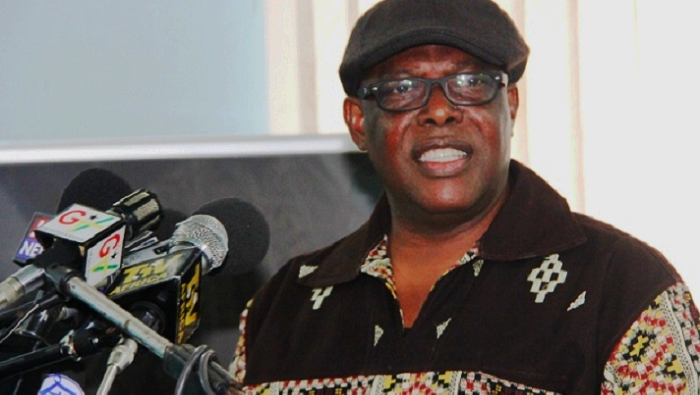
Let’s review equal coverage policy — NMC Chairman
The National Media Commission (NMC) has stated that the provision that requires state-owned media to provide equal opportunities for all presidential candidates has to be reviewed.
Advertisement
The Chairman of the NMC, Mr Kwasi Gyan-Apenteng, said in the face of current realities, that provision of equal opportunities for all political parties could not continue to be a static principle.
Consequently, he said, the NMC would organise a meeting with the chief executives of state-owned media to reappraise the provision to make it reasonable, equitable and doable.
Mr Gyan-Apenteng was reacting to a call by the Managing Director of the Graphic Communications Group Limited (GCGL), Mr Kenneth Ashigbey, to the NMC to have a relook at that provision.
Mr Ashigbey’s argument was that given the huge number of presidential candidates, deploying reporters to cover the activities of all of them with the view to giving them equal opportunities would put an undue financial burden on the state-owned media.
He said it looked as if the mandate for equal opportunities for all presidential candidates was considered without looking at its applicability.
Mr Gyan-Apenteng and other members of the NMC were at the GCGL, a state-owned media house, to brief the executive management of the group on the commission’s programmes towards the elections.
Some members of the NMC on the team were Dr Perpetua Dadzie, Mr Samuel Atta Mensah, Mr Richard Quashigah, Mr Alex Bannerman, Deputy Executive Secretary of the NMC and other management members of the NMC.
Proportionate representation
Managers of the GCGL and other state-owned media often come under attack from especially minority political parties for not giving them equal coverage and publicity as they give to the major parties.
Mr Gyan-Apenteng said other countries employed proportionate methods in handling the coverage of political parties.
“We will have to redefine that provision and make it reasonable, equitable and doable,” he said.
Social media/monitoring
Mr Gyan-Apenteng said the NMC, with support from the United Nations Development Programme (UNDP), would organise a public forum on how to avert the challenges that social media could pose towards the elections.
He said the NMC had already held a meeting with the Inspector General of Police (IGP) and managers of the service on the issue of social media.
He said the problem with social media concerned the way the mainstream media sourced information from unauthenticated social media platforms.
He said the commission had done some monitoring of the media and indicated that it would organise a public forum next month to publicise the findings.
MD on support
Mr Ashigbey said other state institutions got financial support from the government to carry out their work related to elections.
However, he said, the media, which were the Fourth Estate of the Realm, did not get any support in that regard.
He asked the NMC to assist the sate-owned media to also get allocations from the Consolidated Fund to aid their election coverage.
That, he said, would give meaning to the policy to entrench media freedom in the country, saying: “We want to be able to do it well.”
Spoilt ballots/flashpoints
The GCGL MD said the Daily Graphic would launch a campaign against spoilt ballots, which he described as the ‘third party’.
He said research had shown that the phenomenon of spoilt ballots partly resulted from a deliberate act by the parties to spoil ballots in the strongholds of their opponents.
He said the GCGL wanted to discourage people from that “menace”, as “we want the ‘third party’, spoilt ballots, to lose”.
Mr Ashigbey said the GCGL was also coming up with a strategy to see how to minimise conflicts in the flashpoints during the elections.
He said the group was also planning to organise an event to get stakeholders to deliberate on the social media phenomenon and the need to focus on the traditional media as the ultimate source of information.
Newspaper reviews
Mr Ashigbey said the nature of newspaper reviews needed to be reshaped because the reviews did not present a win-win situation for the electronic and the print media.
Besides, he said, newspaper reviews killed the culture of reading in people, saying, for example, that now “people listen to radio because they get what is in the newspapers without paying for it”.




